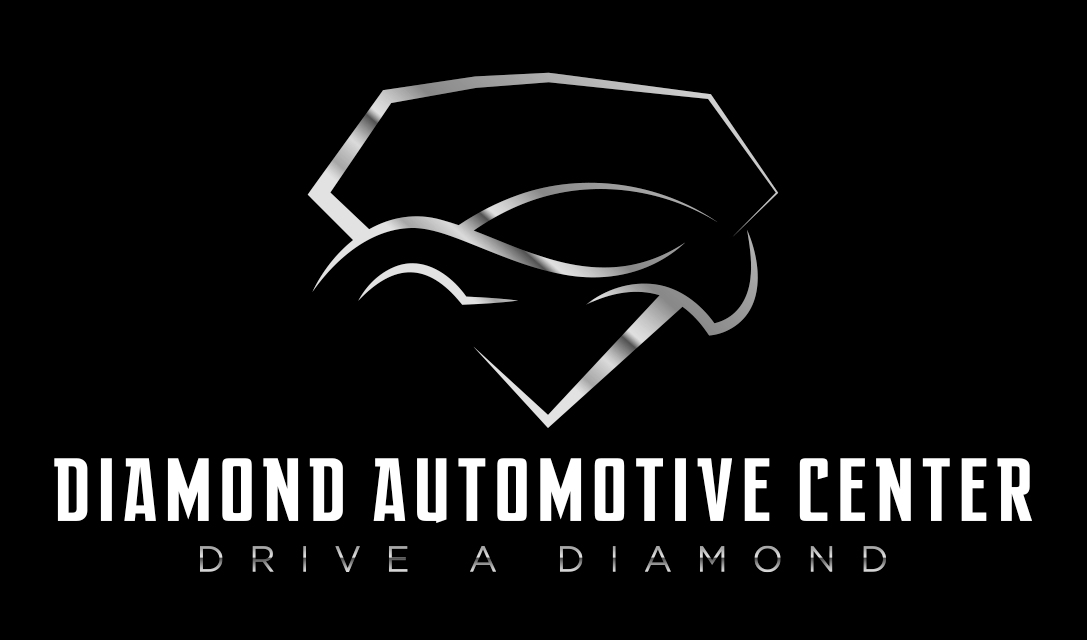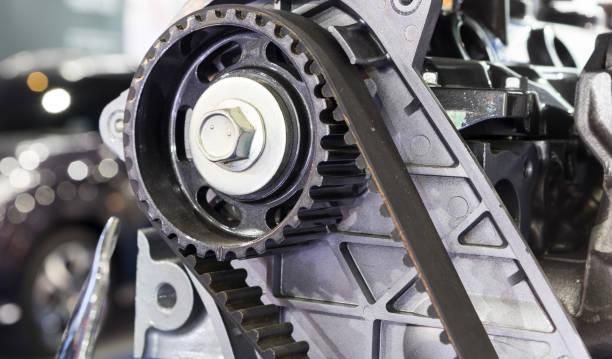
2924 1st Ave N, Billings, MT 59101, United States of America
Monday–Friday: 8:00 A.M.–5:00 P.M.
Belts & Hoses
Belts and Hoses in Automotive: Components, Types, and Maintenance Tips
Belts and hoses keep the engine and other vehicle systems running smoothly. Belts transfer power, while hoses transfer fluids. Both components are vital to the proper functioning of any automobile.
A malfunctioning belt or hose can significantly damage the vehicle's engine and other systems, so it's important to keep them in good condition by having the professionals at Diamond Automotive Center
inspect and replace them regularly.

Belts
Belts play a crucial role in transmitting power from the engine to different systems in a vehicle, including the alternator, water pump, and air conditioning compressor. Typically, manufacturers fabricate automotive belts using rubber or synthetic materials, which are strengthened with cords to boost their durability. Some common types of automotive belts include the following:
- A serpentine belt is a single, continuous belt used to drive multiple peripheral devices in a vehicle's engine, such as an alternator, power steering pump, water pump, and air conditioning compressor. The belt is routed around pulleys on each device, providing them with power from the engine. As the name implies, this belt travels along a serpentine-like path.
- A timing belt/chain synchronizes the crankshaft and camshaft rotation. This belt is typically composed of rubber and reinforced with fiberglass, and it features teeth that interlock with the engine's pulleys. If the timing belt fails, the engine will not function since the belt regulates the opening and closing of the engine's valves for precise timing.
- A V-belt helps power singular accessories like the alternator, power steering pump, and engine cooling fan. Its V-shaped cross-section enables it to grip the pulleys more effectively and prevent slipping. They are commonly used in older vehicles, whereas newer vehicles often use serpentine belts, which have a smoother surface and can transmit power to multiple components simultaneously.
Warning Signs
If an automotive belt breaks while driving, your engine may suddenly stop working. The damage to your car can be costly or irreversible. If you notice any of the following warning signs of belt failure, immediately bring your vehicle to a trusted professional:
- Squealing or chirping sounds from under the hood
- Evidence of cracks or fraying on the belts
- Loss of power steering
- Battery warning light
Hoses
Hoses transport substances such as coolant, fuel, and hydraulic fluid throughout a vehicle's systems. Generally, automotive hoses are made of rubber or other flexible materials to contain the substances they transfer and to allow for movement and vibration within the vehicle.
Hoses are critical in adequately employing a vehicle's various systems and components. Some examples of automotive hoses are:
- Radiator hoses are rubber hoses that connect the radiator to a vehicle's engine. They transfer refrigerant from the engine to the radiator, which cools it before it flows back through the engine to maintain a safe operating temperature. These hoses are essential to a vehicle's cooling system and must undergo routine checks for signs of wear or damage to prevent leaks or overheating.
- Fuel hoses are flexible tubes that transport gasoline, diesel, and other fuels from the vehicle's fuel tank to its engine. These parts are composed of rubber or similarly durable materials that can endure excessive pressures and chemical exposure present in fuel delivery. Fuel hoses are critical to the fuel system as they help transfer fuel safely and efficiently.
- As essential elements of a vehicle's braking system, brake hoses carry brake fluid from the master cylinder to the brake calipers or wheel cylinders. Brake hoses allow brake fluid to flow through and apply hydraulic force to the brake pads, enabling them to slow down or stop the vehicle.
- Power steering hoses allow power steering fluid to flow through and apply pressure to the steering gear, making it easier to turn the steering wheel.
Warning Signs
Automotive hose failure can lead to engine overheating and severe damage. If you detect any of these warning signs, have your car inspected as soon as possible:
- Visible hose damage, including cracks, bulges, or leaks
- A hissing sound coming from the engine
- Loss of pressure in your car's cooling system
- Coolant leaking or puddling underneath your car
Maintenance Tips for Belts and Hoses
Belts and hoses are susceptible to wear, heat, and exposure to the elements, inevitably deteriorating over time. Visit Diamond Automotive Center for regular inspections and maintenance is crucial for guaranteeing optimal performance and avoiding unexpected failures. Here are some key maintenance tips:
- Conduct a regular visual belt and hose inspection by checking for excessive belt and hose wear, cracks, fraying, bulges, leaks, looseness, or misalignment. Be sure to test for any belt tension loss. Better yet, have Diamond Automotive Center inspect these components for you.
- Adhere to the manufacturer's recommended replacement intervals for belts and hoses. Remember that the intervals may differ depending on the vehicle type and specific components.
- Let Diamond Automotive Center perform routine coolant system flushing at appropriate intervals to eliminate debris and contaminants that could potentially damage the hoses, causing issues within the cooling system.
- Contact the experts at Diamond Automotive Center to schedule a professional inspection for belts and hoses. If you observe signs of belt and hose wear or damage or have any concerns about your belts or hoses, you must get them checked by a professional mechanic. They can do an in-depth check to evaluate the condition of your systems and obtain any needed replacement parts.
Keep Your Belts and Hoses in Working Order With Diamond Automotive Center
Look no further than Diamond Automotive Center in Billings, MT for all your vehicle's belt and hose needs. As locals, we understand the value of honest and exceptional service and treat our customers like family. Our skilled technicians take pride in diagnosing and resolving any automotive issues to ensure your vehicle remains safe and performs optimally.
At Diamond Automotive Center, we take the time to explain every repair before servicing your vehicle. Our commitment to our customers means we go above and beyond to guarantee your vehicle is in top-notch condition. You can trust our friendly and knowledgeable team to get you back on the road quickly and safely.
CONTACT US
2924 1st Ave N, Billings, MT 59101, United States of America
HOURS OF OPERATION
Monday–Friday: 8:00 A.M.–5:00 P.M.
GET SOCIAL
NAVIGATION
Contact Us
We will get back to you as soon as possible.
Please try again later.
Diamond Automotive Center is honored to serve the community of Billings, MT with car repair and automotive repair services. We work hard to be the best auto shop in Billings, MT and our automotive professionals always strive to provide our customers honest, efficient and friendly service. We also carry top brands that will suit your needs. Please contact us if you need automotive or car repair services.
All Rights Reserved • Privacy Policy & Terms of Use • Powered By

